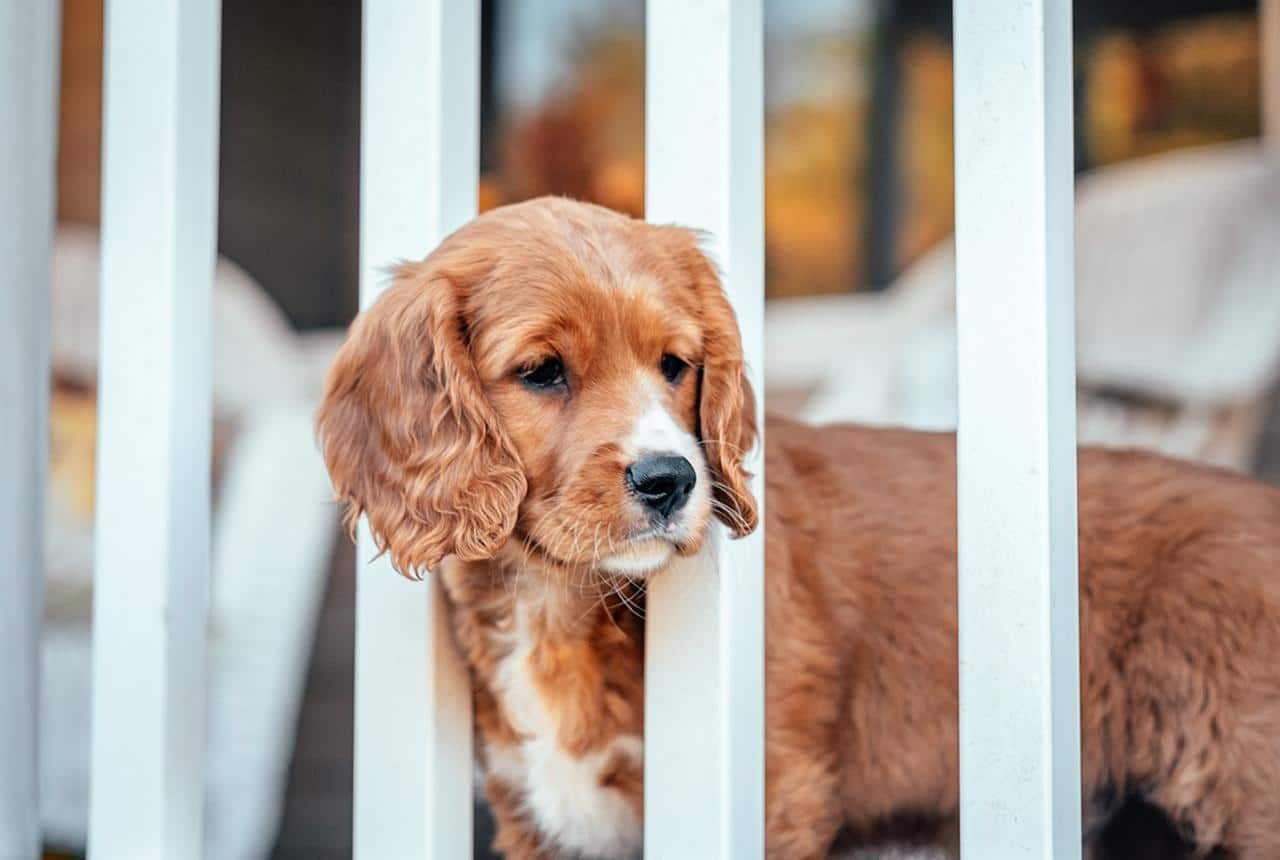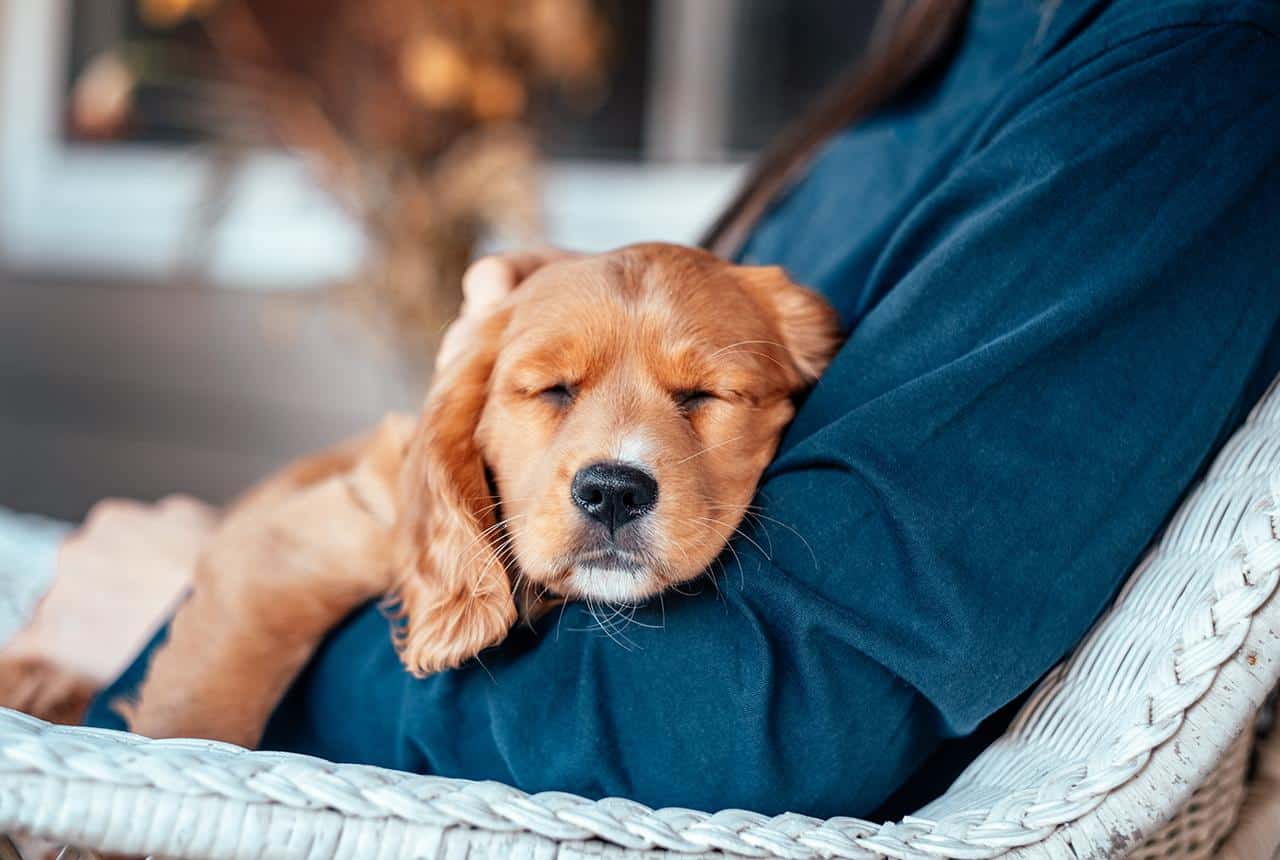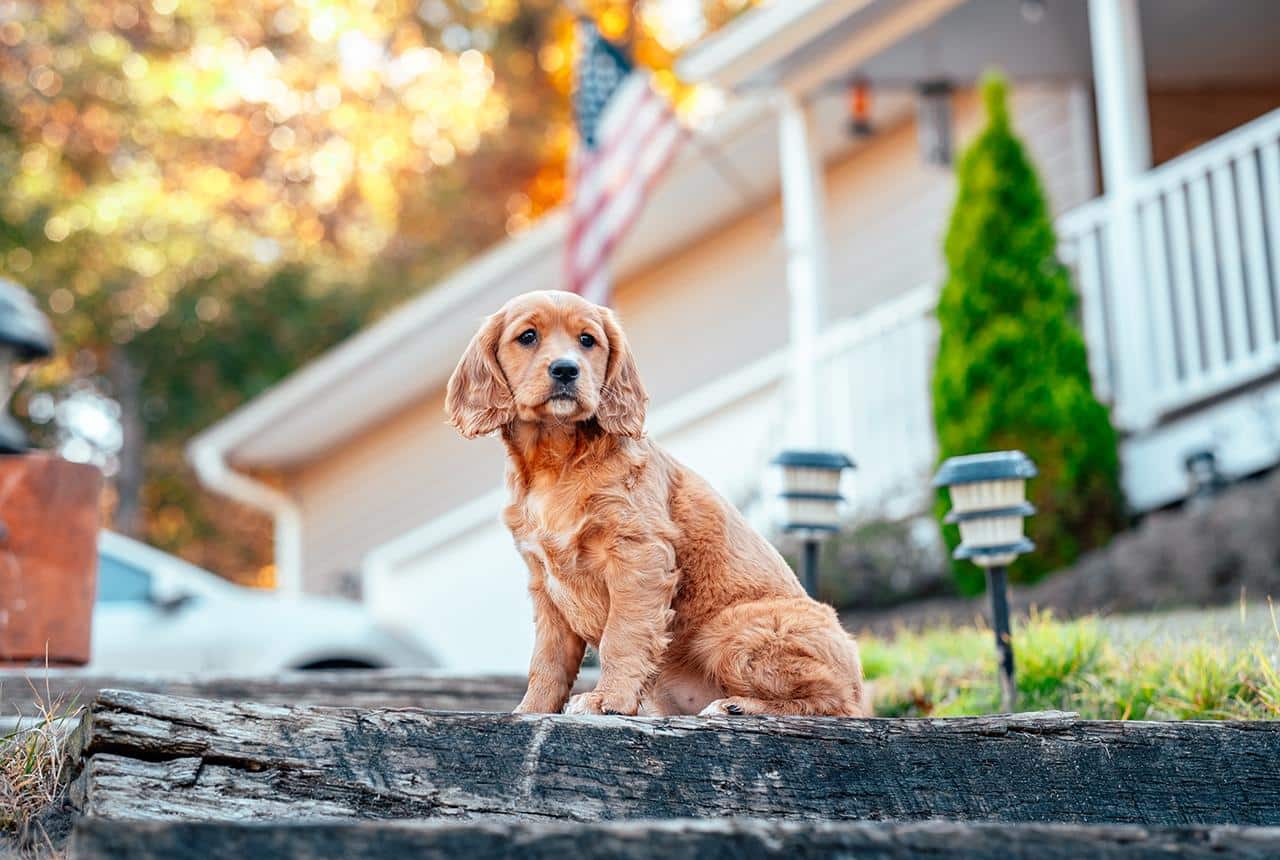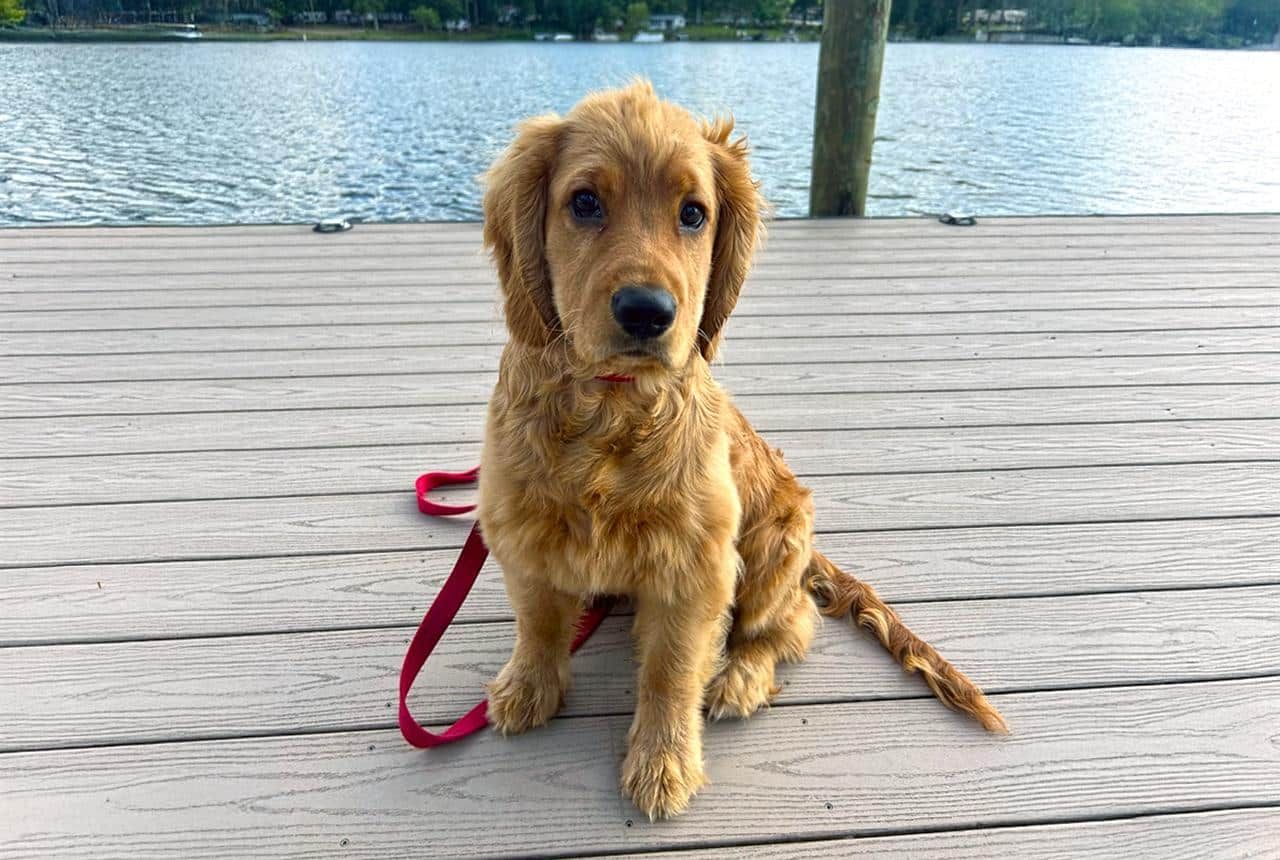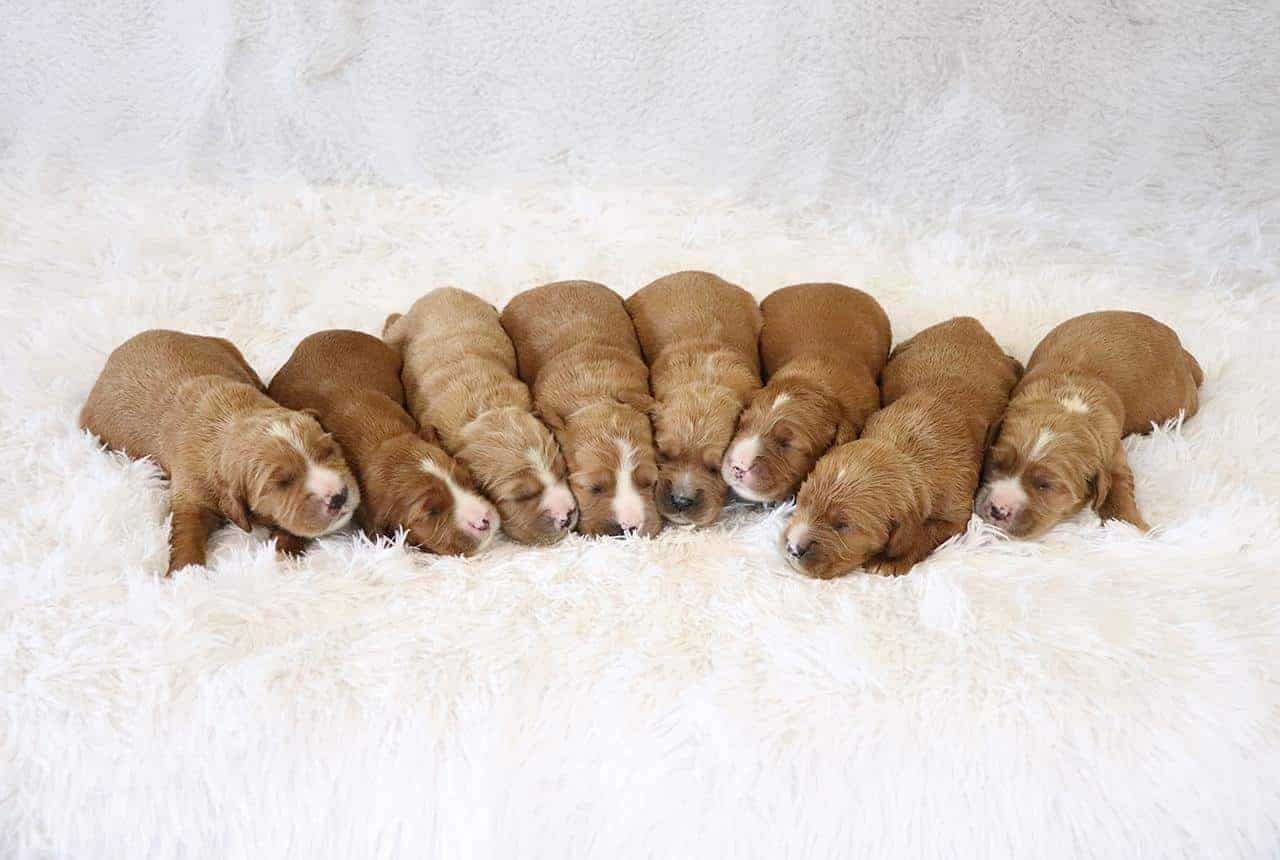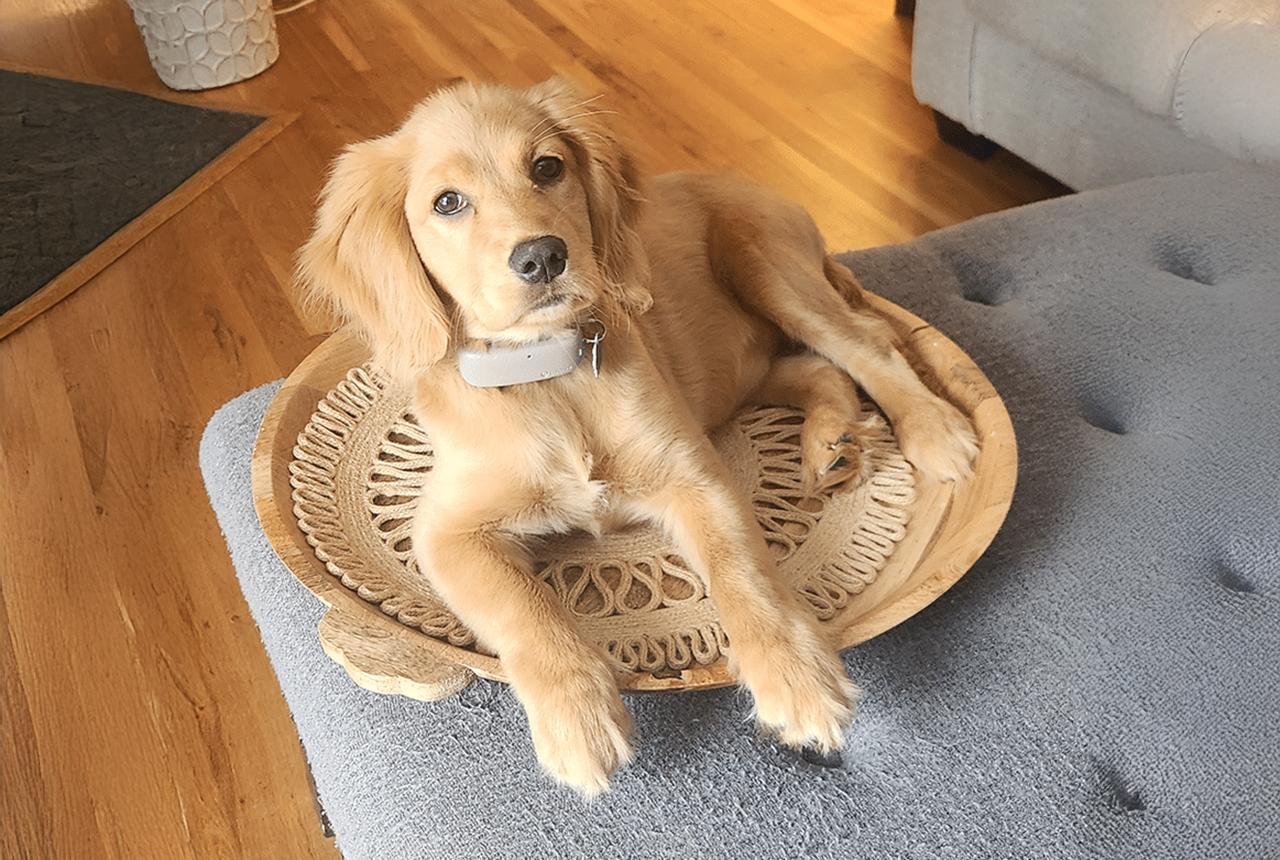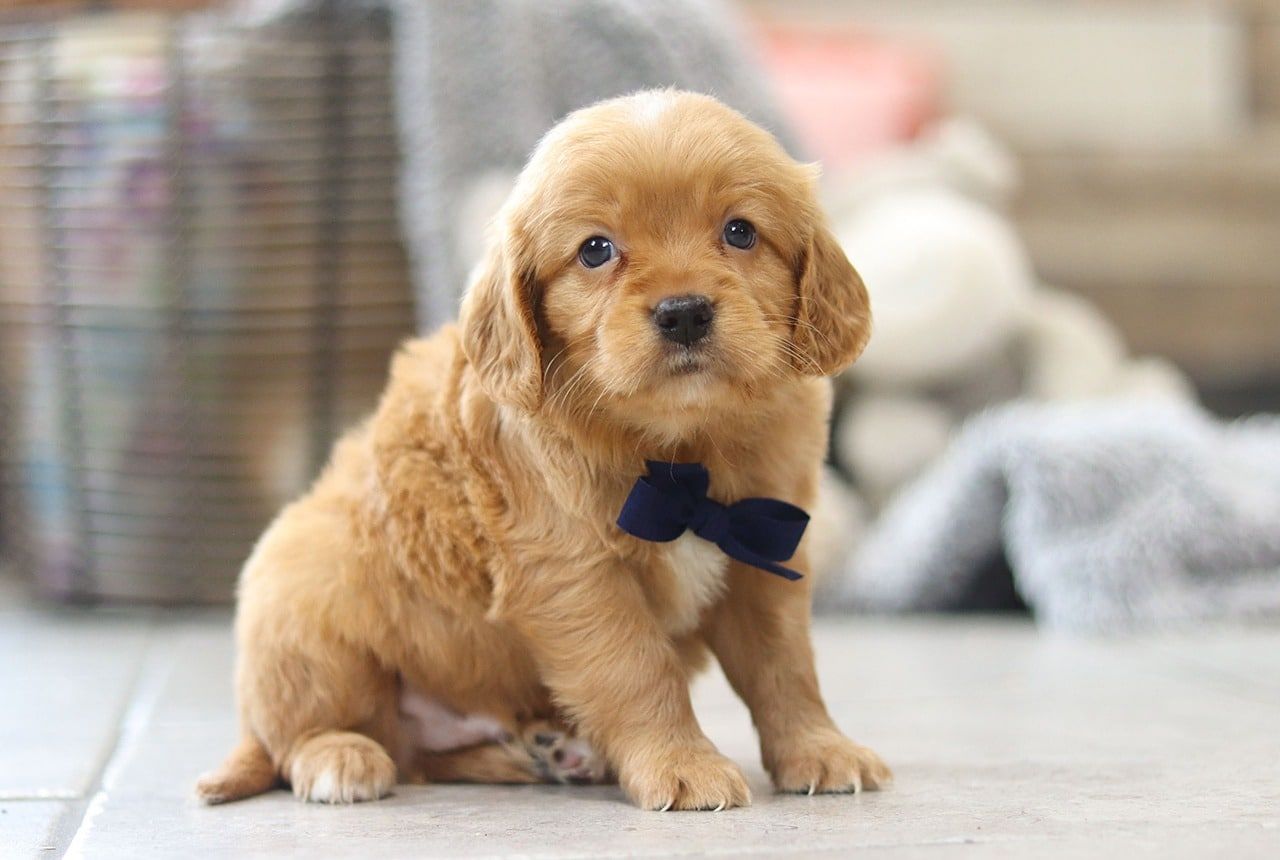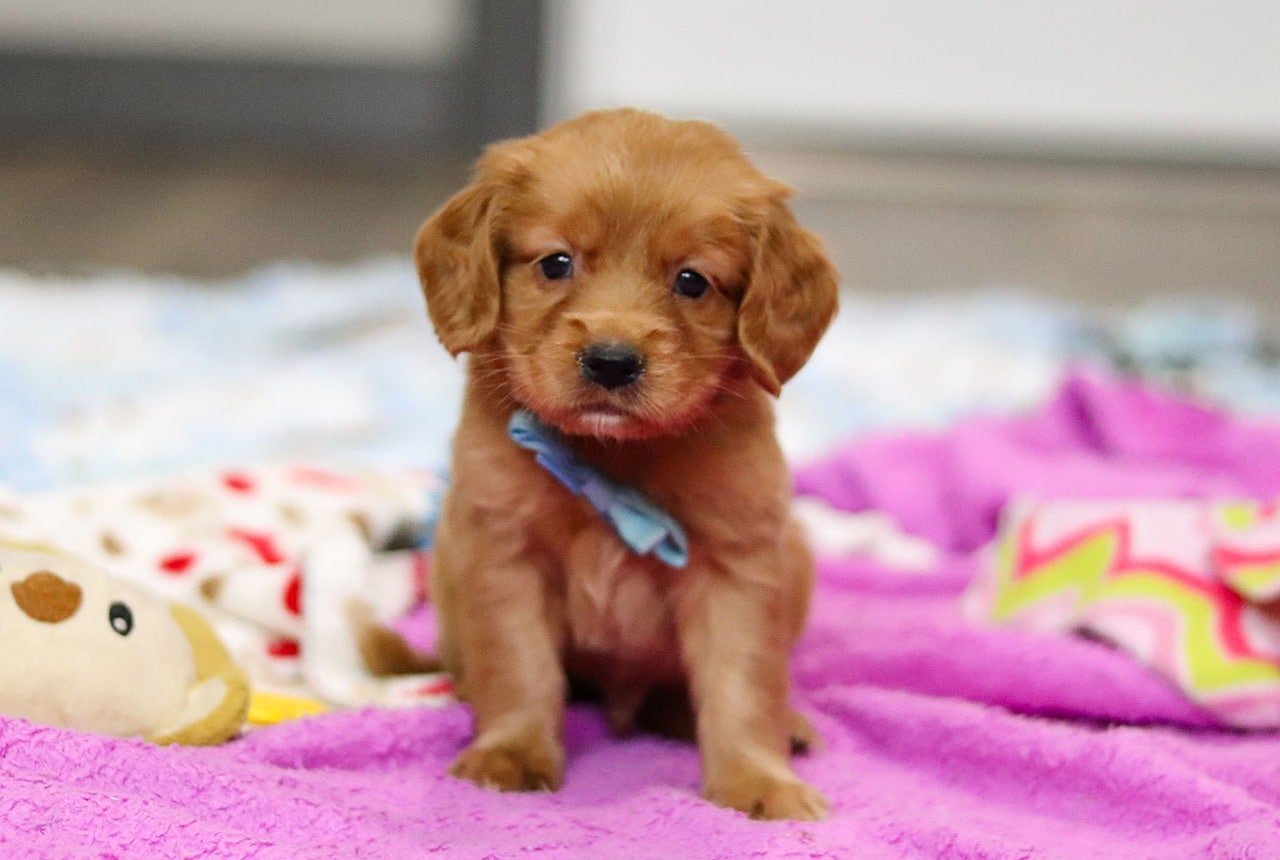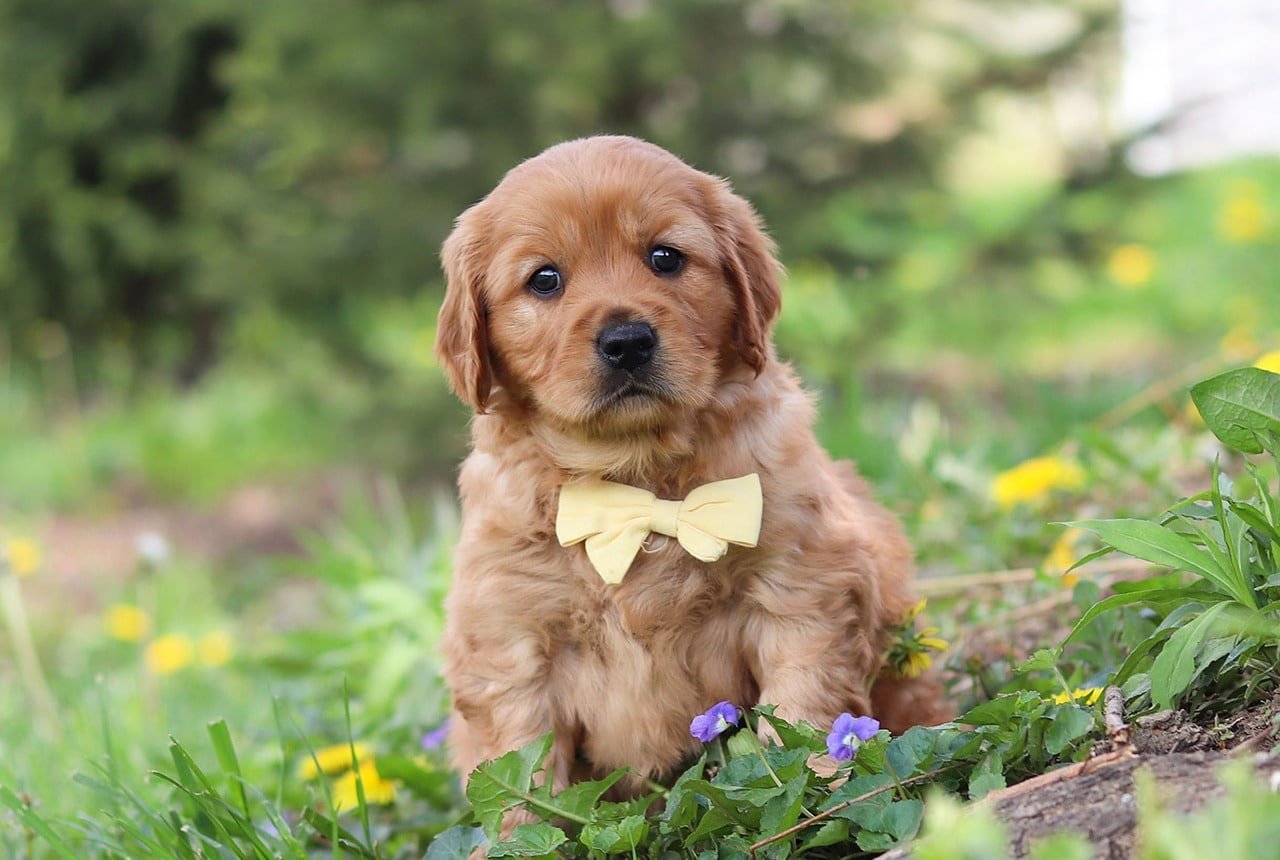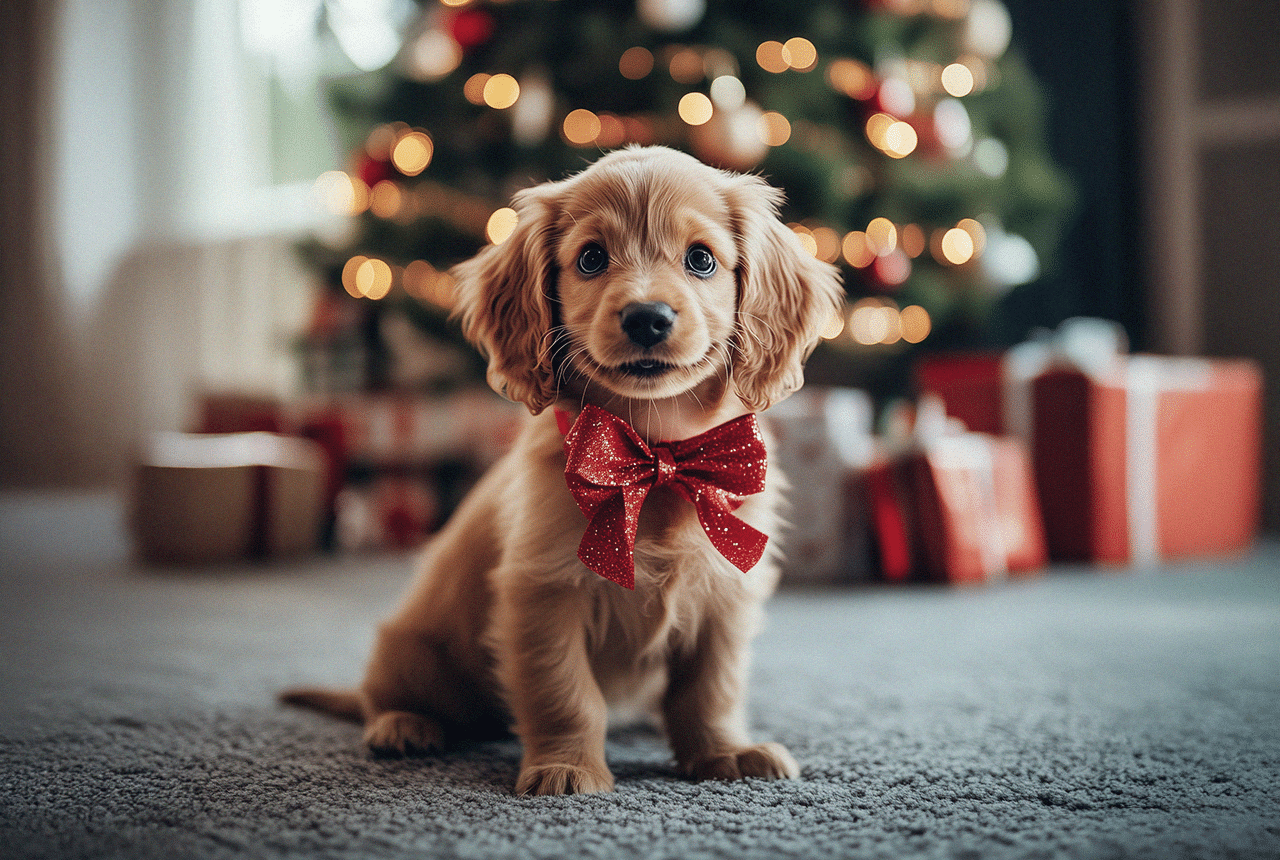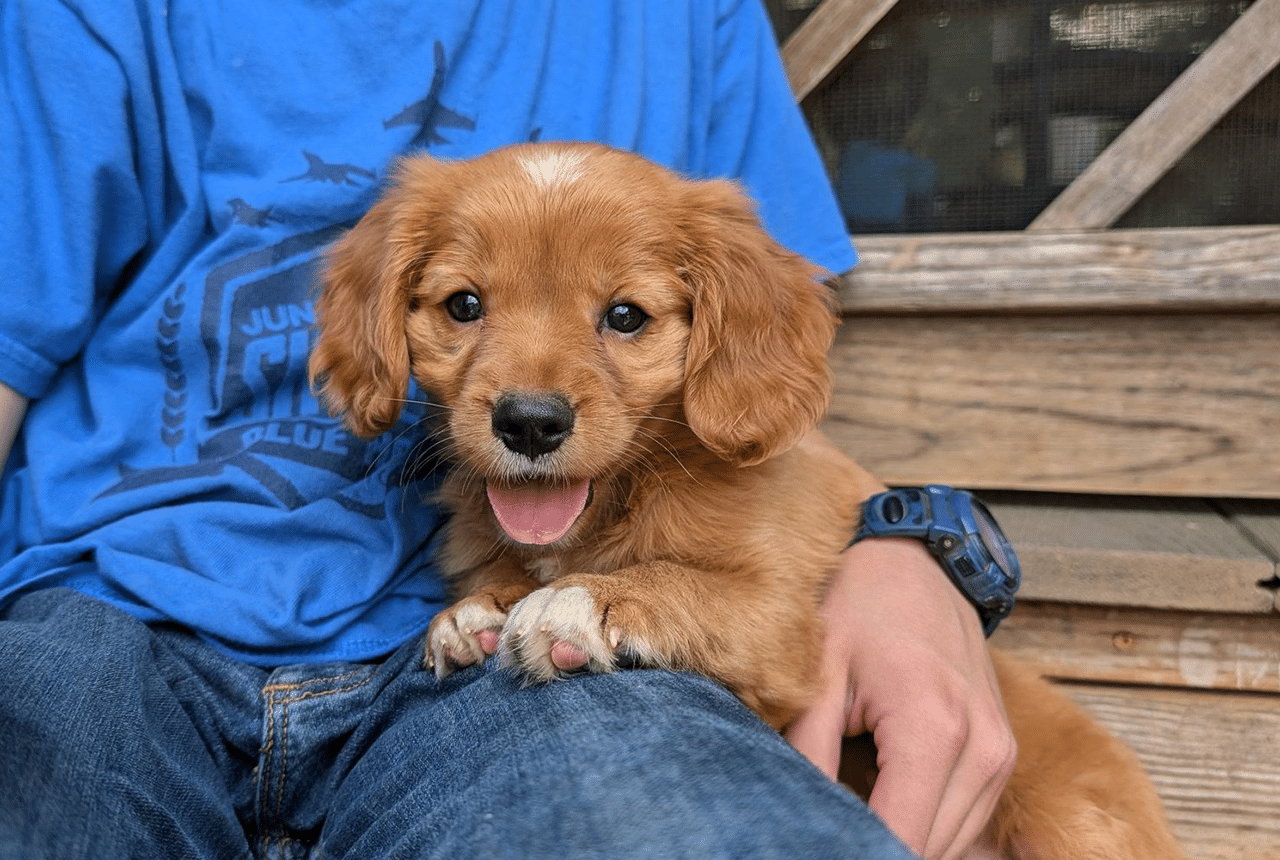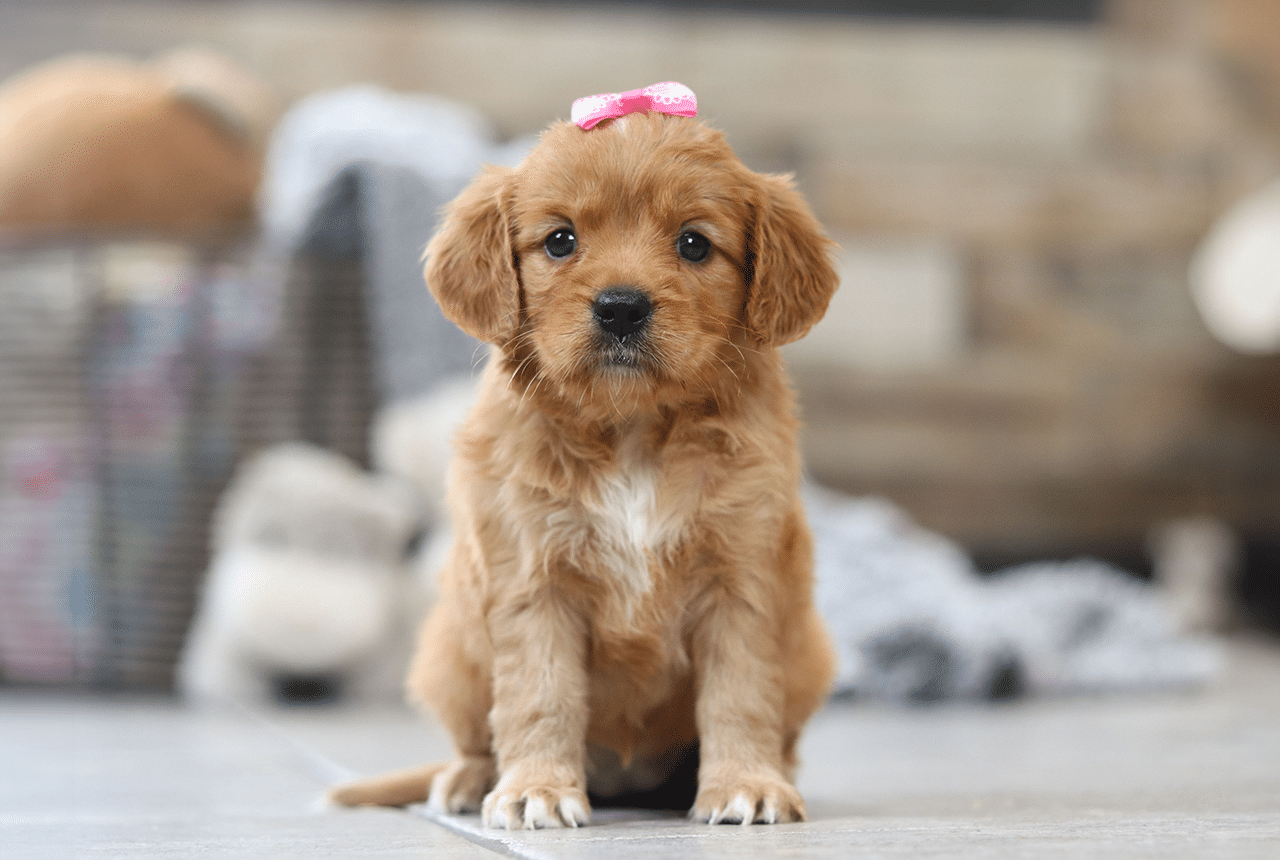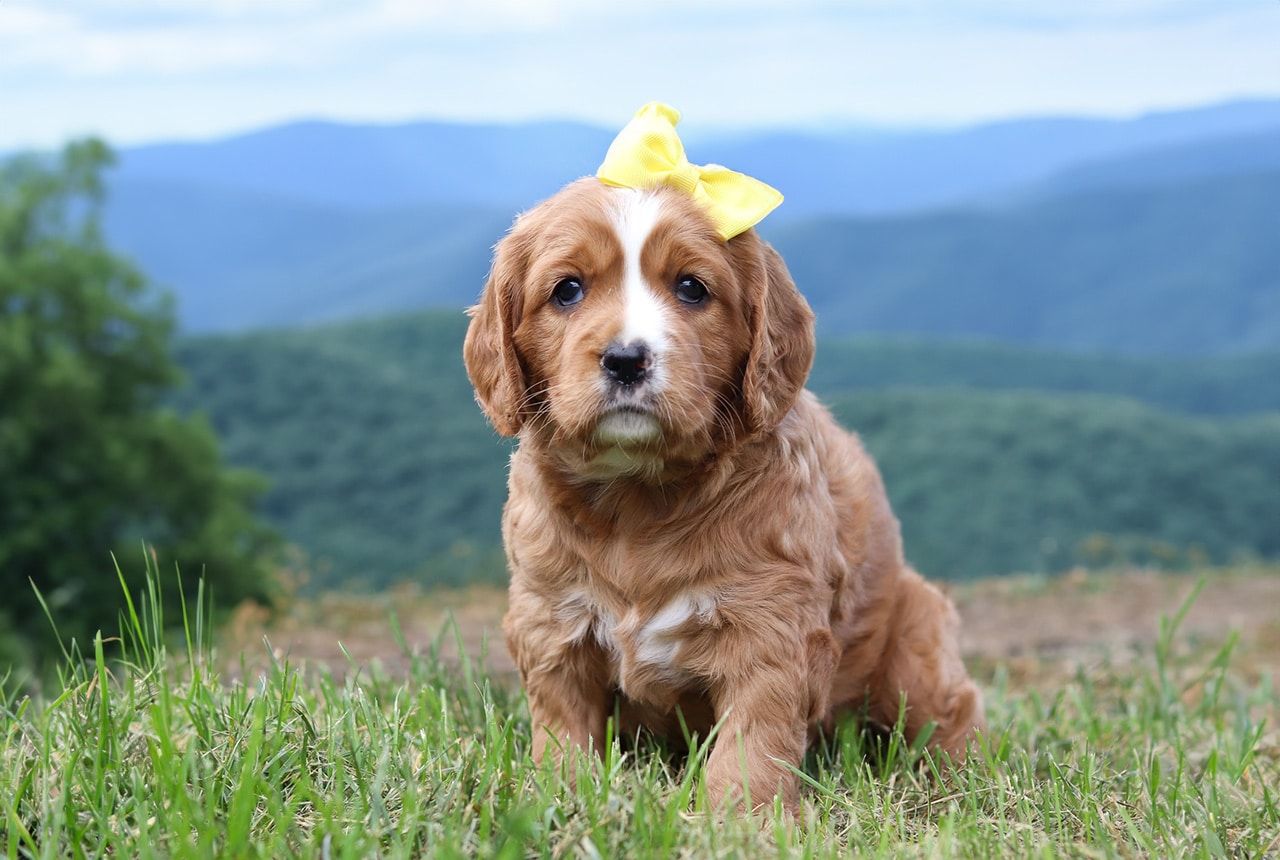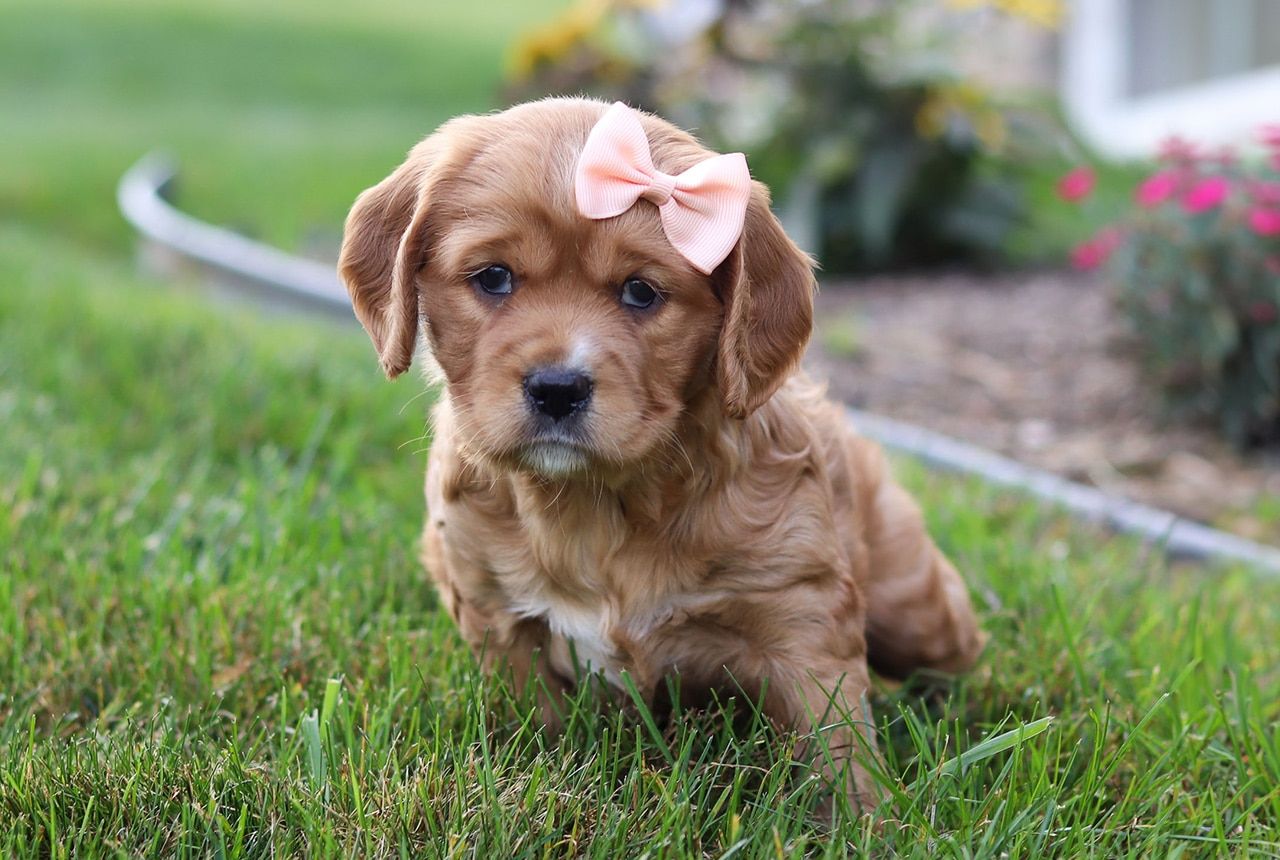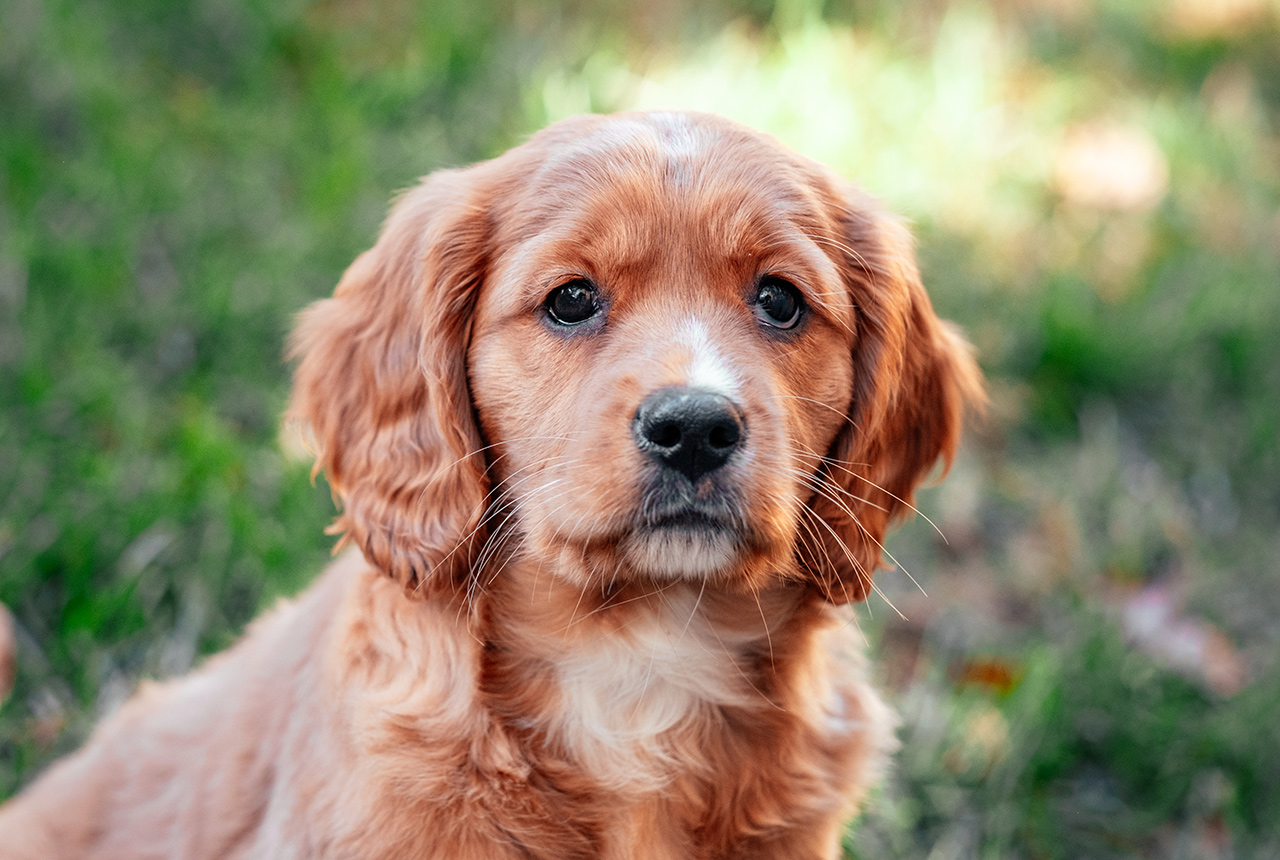Mini Golden Retriever Temperament – Traits & Behaviour Guide
When you’re “in the market” for a new puppy, finding the cutest nose or fluffiest coat is not necessarily the only consideration. You want to look at how well the dog’s personality will fit into your daily schedule and family life.
The Mini Golden Retriever temperament plays a massive role in your selection. You want a companion that will match your behavioral style and emotional expectations. Read on to learn more about how this hybrid breed tends to act around its owner, as well as other pets and humans.
The Typical Mini Golden Retriever Personality
Most Mini Goldens have a delightful mix of charm, affection, and intelligence owners love. They carry a lot of loyalty and are easier to train than other hybrid and purebred dogs due to their willingness to see you happy.
These hybrid breed dogs delight in meeting and playing with people. They have a natural curiosity and belief that they are in a warm and inviting space. Of course, the more you socialize the dog during the developmental years, the easier it will be when your great uncle comes for a visit or it’s time to check out a new dog park.
Various Inherited Temperament Traits
You can tell a lot about how a Mini Golden Retriever personality develops based on the mix of parental breeds and lineage. A Mini Golden with a standard Golden parent tends to lean more towards the gentle and even-tempered realm. They are family-oriented, loyal, and engage in training activities.
On the Cavalier King Charles Spaniel side of the coin, you’ll find a lot of affection and calm. They love lap time and live well in spaces with other people and animals.
Even though the Standard Golden Retriever and Cavalier King Charles Spaniel are highly trainable, you may want to know if there is any Poodle in the mix. That will lead to more alert Mini Goldens that are energetic, playful, and desire more mental engagement.
How Do Mini Goldens Work with Other People
The baseline Mini Golden Retriever temperament is one of acceptance. They are highly sociable and will quickly bond with friends, neighbours, and other pets – as long as they feel safe and secure.
Don’t be surprised to find a Mini Golden walking along behind a child in the family as if they are its best friend. You still need to train them, but the general idea is they love to be loved.
How About Other Animals
As for the Mini Golden Retriever personality with other pets, animals on walks, and enjoying a dog park, you’ll find the same level of socialization. Again, better temperament or more accepting personality has a lot to do with how early you socialize your beloved four legged friend.
Aggression is rare. Some nervousness may exist around specific breeds of pets or sounds that are uncommon, but you can train these factors out with patience and positive reinforcement, such as affection.
Interested to know about other breeds? Check out our official website.
Are Mini Goldens Easy to Train?
The unique lineage of a Mini Golden makes it one of the best animals to effectively train. Having a higher intellect allows you to quickly train essential commands (stay, leave it, sit, etc.) and leaves plenty of room for tricks and advanced commons in the future.
You’ll find this doggo eager to please. They want to see you happy and will go out of their way to learn how to act in your presence. These factors are why you’ll find the Mini Golden in many agility and kennel club competitions.
The Energy of a Mini Golden Retriever
Expect high energy levels when your new family member is still a puppy. That will fade the older it gets, but it takes a little while. Nothing like a herding dog or work pup, but plenty to keep you busy. While they love to cuddle, you can consider them a moderate to high-energy companion.
Make an effort to schedule daily walks and weekend trips to the park, where they can run around for an hour or so. You should provide them with plenty of mental stimulation by using puzzle feeders or fun toys at home.
Emotional Sensitivity in Differing Living Situations
The Mini Golden Retriever personality is one of empathy. It is incredibly aware of its owner’s emotional state and will do its best to make you feel more at ease. They make exceptional emotional support animals – even in group settings like a care home or summer camp.
The only thing you need to be aware of is separation anxiety. If you leave your beautiful dog alone for too long, you could come home to ripped shades or chewed-up couch cushions. The Mini Golden Retriever will adapt to its living situation, as they are pretty level-headed and easy-going, but you need to engage, train, and reward them as appropriate.
Changing Dog Temperament Over the Years
Barking isn’t really a big concern with the Mini Golden Retriever personality. They will happily alert owners to strangers on the property or if an unexpected sound surprises them, but a couple of barks are much different than aggression or loud vocalizations.
Those sounds shift through different life stages. The personality of your puppy will shift from year to year like:
- Puppy: Higher energy and curiosity factors that may require more supervision.
- Adult: Calm demeanor and highly affectionate – looking to respond to routines and commands.
- Senior: Slower physical activity, but deeper emotional bond and in need of extra TLC.
No two Mini Golden Retriever temperaments are ever the same. While you can expect a happy, open, and calmer dog as it ages, it will be different from other developed pooches. Some might be more willing to play than others, so pay close attention to your dog’s specific personality.
Also Read: Golden Cavalier Lifespan – Proven Ways to Ensure Longevity
Any Behavioral Red Flags with the Mini Golden?
The vast majority of the time, you have nothing to worry about concerning the Mini Golden Retriever personality. Give it a happy, healthy home, and it will remain calm and wish for a solid bond with its owners.
The only things to worry about are separation anxiety and boredom-based behaviours. When left alone, a Mini Golden might start chewing on your fresh leather sofa, dig in the yard around your pool, or leave few “surprises” on the kitchen floor. You may need to introduce crate training or doggy daycare, but first address daily walks, a balanced diet, and building a strong bond before trying something else.
The most important things you can do to ensure your dog is growing well would be to:
- Socialize your dog as early as possible with varying people, animals, pets, and busier environments like a busy shopping area.
- Give your dog a lot of mental enrichment through treat dispensing games, scent-based activities, and family playtime.
- Consistency is a good idea so you reduce surprises that might upset your Mini Golden.
Most importantly, maintain a positive attitude when disciplining or correcting your Mini Golden Retriever’s personality flaws. Redirection is much better than scolding. You want to build trust whenever possible.
Also Read: How to Choose a Reputable Breeder
Conclusion
The Mini Golden Retriever temperament makes it a beloved pet that people all over the country enjoy. They are intensely loyal, love to play, intelligent, adaptable, and affectionate. This breed makes a great companion for children, families, adults, and seniors.
As long as you’re doing all you can to have a healthy, happier living space for your Mini Golden, you should easily reap all the rewards of this excellent addition to the family.
Don’t miss your chance — apply now to join the waitlist for our exclusive Mini Golden Puppies!
